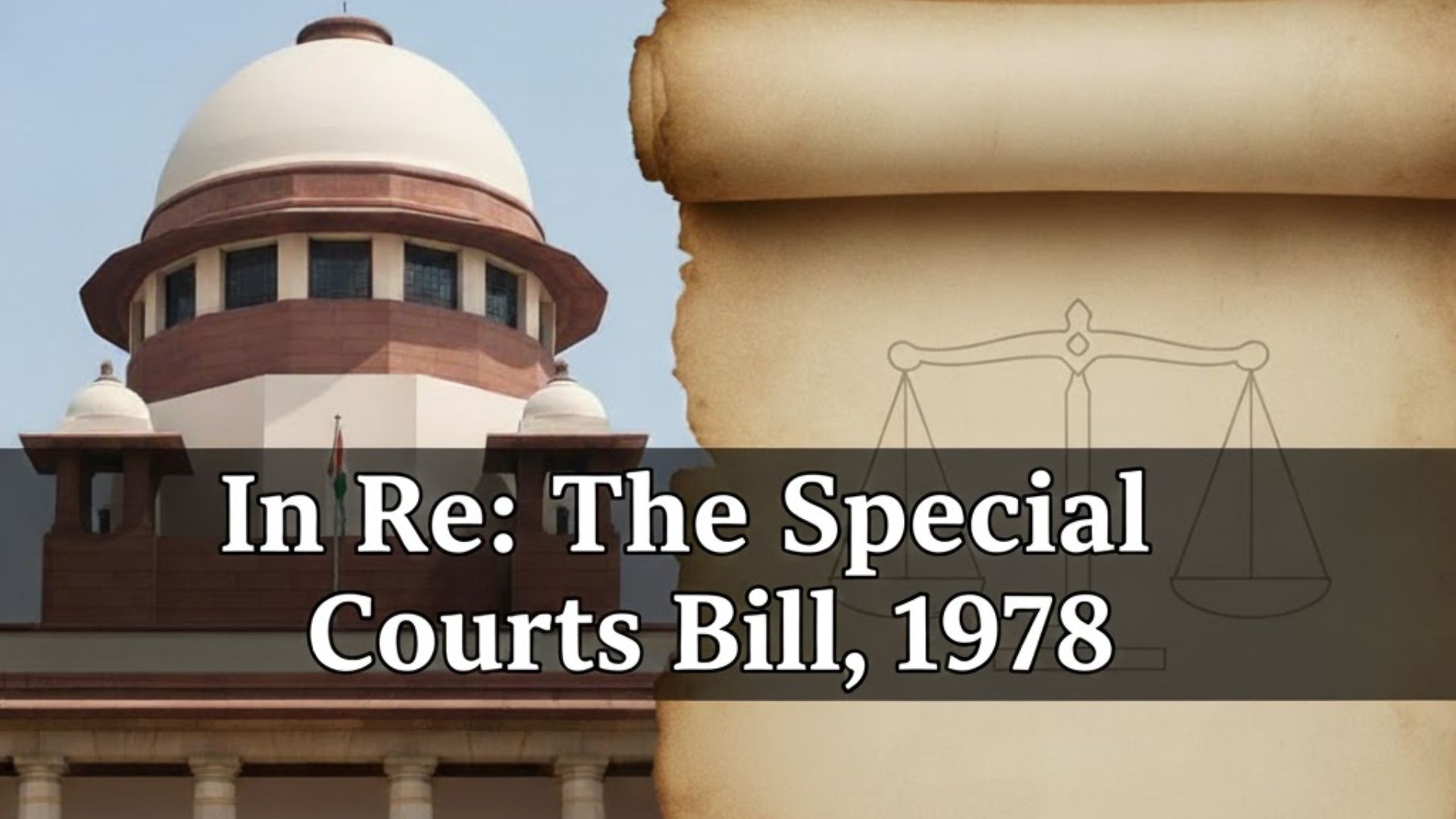
Case Summary: In Re: The Special Courts Bill, 1978
**Case Stats:**
Name of the Court: Supreme Court of India
Case No: Special Reference No. 1 of 1978
Date of Decision: 01-12-1978
Bench: Y. V. Chandrachud, C.J; V. R. Krishna Iyer, J; S. Murtaza Fazal Ali, J; R. S. Sarkaria, J; P. N. Shingal, J; P. N. Bhagwati, J; N. L. Untwalia, J
Type of Bench: Full Bench
Final Decision: Overruled
Citations: AIR 1979 SC 478; (1979) 1 SCC 380; (1979) 2 SCR 476
[Judgment Source]
https://www.courtkutchehry.com/Judgement/Search/AdvancedV2?docid=281067
Facts of the Case
The President of India referred the Special Courts Bill, 1978 to the Supreme Court under Article 143(1) of the Constitution seeking its opinion on the Bill's constitutional validity. The Bill aimed to create Special Courts for speedy trial of offences allegedly committed by persons holding high public or political offices during the Emergency period (25 June 1975 – March 1977) and the preceding period. Reports from Commissions of Inquiry indicated prima facie offences, and the government intended to prosecute such persons to preserve parliamentary democracy and constitutional institutions.
Law Points Raised
1. Whether the Special Courts Bill, 1978, if enacted, would violate fundamental rights under Article 14 (equality before law).
2. Whether the Bill's provision granting exclusive jurisdiction to Special Courts and limiting appeals to the Supreme Court undermines judicial structure.
3. Whether the classification of accused persons (based on holding high offices during the Emergency) was reasonable and constitutionally valid.
4. Whether procedural deviations from the Criminal Procedure Code, 1973, were permissible.
5. Scope of Parliament's power to enact such a law under Articles 133, 134, 138, and 139.
Acts / Provisions / Articles Referred
• Constitution of India, 1950 — Article 133, 134, 138, 139, 14
• Criminal Procedure Code, 1973 — Section 11(2), 177, 189, 2(4), 4
• Indian Penal Code, 1860 — Section 116, 120
Judgements Referred
• State of West Bengal v. Anwar Ali Sarkar (1952)
• Maganlal Chhaganlal v. Municipal Corporation of Greater Bombay (1974)
• Special Courts Bill references to earlier emergency period cases
Obiter Dicta
The Court observed that while Parliament could legislate to ensure speedy trials, it must do so within the bounds of constitutional guarantees. The classification must be reasonable, non-arbitrary, and based on intelligible differentia with a rational nexus to the object sought.
Ratio Decidendi
The Bill's provisions granting the Central Government power to selectively declare cases for trial before Special Courts without judicial review violated Article 14. The absence of adequate safeguards against arbitrary classification rendered the Bill unconstitutional.
Final Ruling
The Supreme Court opined that the Special Courts Bill, 1978, in its present form, would be constitutionally invalid if enacted.
Summary
The Supreme Court, responding to the Presidential Reference, held that while the objective of speedy trials for offences during the Emergency was laudable, the Bill's provisions violated constitutional guarantees under Article 14 by permitting arbitrary classification and removing judicial review. Thus, the Bill in its present form would be unconstitutional.
[Judgment Source]
https://www.courtkutchehry.com/Judgement/Search/AdvancedV2?docid=281067